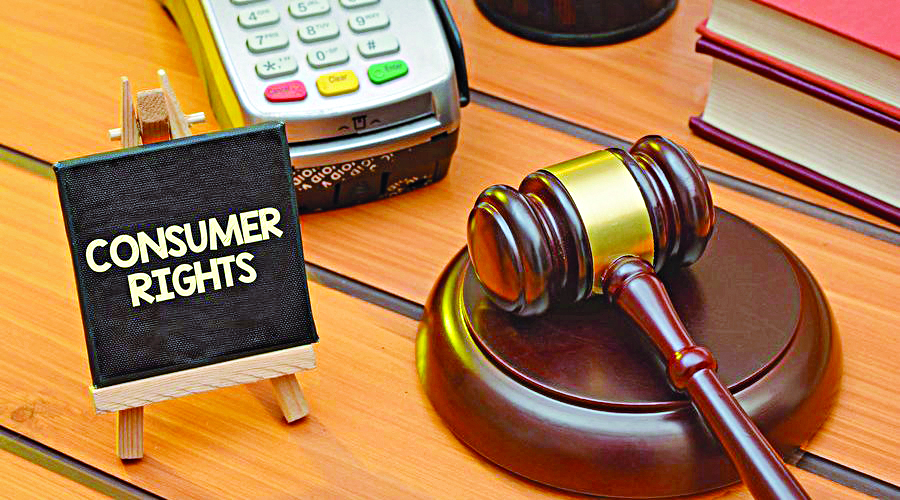By Adv. Aazmeen Kasad
Adv. Aazmeen Kasad is a practicing corporate advocate with over 20 years of experience and a Professor of Law for 15 years. You could write to her to answer your specific legal queries. Follow her legal updates on Twitter @Aazmeen
 Parsis are known to be a happy-go-lucky community, following the doctrines and essence of our religion – Good Thoughts, Good Words and Good Deeds. Naturally, when the community practices what the religion professes, it does seem disappointing when one experiences that which is not in sync with our ethos. A bad experience leads to complaining and ranting about it to family or friends. But can one do more than that? Commencing from this New Year, let’s be aware of our rights under the laws in force. You do not have to be litigious by nature to benefit from this article. Demonstrating your knowledge of the law could lead the perpetrator(s) of the wrong-doing to realise that you are not ignorant, and that could compel them into doing what is right.
Parsis are known to be a happy-go-lucky community, following the doctrines and essence of our religion – Good Thoughts, Good Words and Good Deeds. Naturally, when the community practices what the religion professes, it does seem disappointing when one experiences that which is not in sync with our ethos. A bad experience leads to complaining and ranting about it to family or friends. But can one do more than that? Commencing from this New Year, let’s be aware of our rights under the laws in force. You do not have to be litigious by nature to benefit from this article. Demonstrating your knowledge of the law could lead the perpetrator(s) of the wrong-doing to realise that you are not ignorant, and that could compel them into doing what is right.
This article will especially be of use to you the next time you come across an incident where: (i) an unfair contract or trade practice is adopted by any trader / service provider; (ii) goods bought by you are defective; (iii) services hired /availed suffer from one or more deficiency; (iv) you are charged for goods or services in excess of the price fixed by the law or displayed on the package of the goods or price list or agreed between the parties; (v) goods / services which are hazardous to life and safety when used, are offered for sale in contravention of the legally prescribed standards relating to the safety of such goods, and / or (vi) when you contemplate initiating a product liability action against the product manufacturer, seller or service provider (for e.g. one who provides the delivery or the after sales service for the product purchased).
Who is a consumer? What are your rights? Can a consumer alone be a complainant? What kind of services are covered (and thus, are you protected from) under the law? What qualifies as a defect or a deficiency? Let’s demystify some queries…
Rights Of Every Consumer
As consumers, each of us is endowed with a set of basic rights, under the Consumer Protection Act, 2018, such as (i) the right to be protected against the marketing of goods, products or services which are hazardous to life and property; (ii) the right to be informed about the quality, quantity, potency, purity, standard and price of the goods, products or services, so as to protect us against unfair trade practices; (iii) the right to be assured, wherever possible, and access to a variety of goods, products or services at competitive prices; (iv) the right to be heard and to be assured that our interests will receive due consideration at appropriate forums; (v) the right to seek redressal against any unfair trade practice or restrictive trade practices or unscrupulous exploitation of consumers.
Who Is A Consumer?
A consumer is any person who buys goods and includes one who uses goods with the approval of the person who has purchased the goods. Likewise, a consumer is any person who avails or hires services and includes the beneficiary of the service who uses it with the approval of the person who hires or avails the service. The law applies equally to goods purchased and services hired or availed via offline or online transactions through electronic means or by teleshopping or direct selling or multi-level marketing. However, a person who obtains goods for resale or commercial purpose or one who avails any service for any commercial purpose, does not qualify as a Consumer.
Can Only A Consumer Be A Complainant?
Per the Consumer Protection law, apart from a Consumer (or one or more consumers where there are numerous consumers having the same interest), the parent or legal guardian (of a minor consumer), the legal heir or legal representative of a deceased consumer, any voluntary consumer association registered under any law, the Central Government or any State Government, the Central Authority, also qualify as complainants.
What Goods Are Covered Under The Consumer Protection Law?
All kind of movable goods, including food, as defined under the Food Safety and Standards Act, 2006, are covered.
When Are Goods Considered As Defective?
When the goods suffer from any fault, imperfection or shortcoming in the quality, quantity, potency, purity or standard, which is required to be maintained by or under the law or under any express or implied contract, or as claimed by a trader, they are considered to be defective.
What Kind Of Services Are Covered Under The Law?
Services of any description which are made available to potential users, including the provision of facilities in connection with banking, financing, insurance, transport, processing, supply of electrical or other energy, telecom, boarding or lodging or both, housing construction, entertainment, amusement or the purveying of news or other information, are covered. Thus, all services are covered, except those notified otherwise by the Government. However, any service availed free of charge or under a contract of personal service, is not covered under the Consumer Protection law.
When Are Services Considered To Be Deficient?
When a consumer experiences any fault, imperfection, shortcoming or inadequacy in the quality, nature and manner of performance of the service, which is required to be maintained by or under any law, for the time being in force or has been undertaken to be performed by a person, in pursuance of a contract or otherwise in relation to any service, the service is considered to be deficient. A deficient service is also one which includes (i) any act of negligence or omission or commission by such person which causes loss or injury to the consumer; and (ii) deliberate withholding of relevant information by such person to the consumer.
In future articles, we will throw light on what is meant by unfair contracts and unfair trade practices with examples of unfair contracts, that you may have been, are or could be subject to.
- કેવો સુંદર જવાબ! - 29 March2025
- પારસી સન્નારીઓ તેમના જાદુઈ સ્પર્શ સાથે બની સુરત મેરિયોટ અથવા લાઇન્સના રસોડાની રાણીઓ - 29 March2025
- મોબેદ મેહરાબાન ફિરોઝગરીનું અવસાન - 29 March2025
